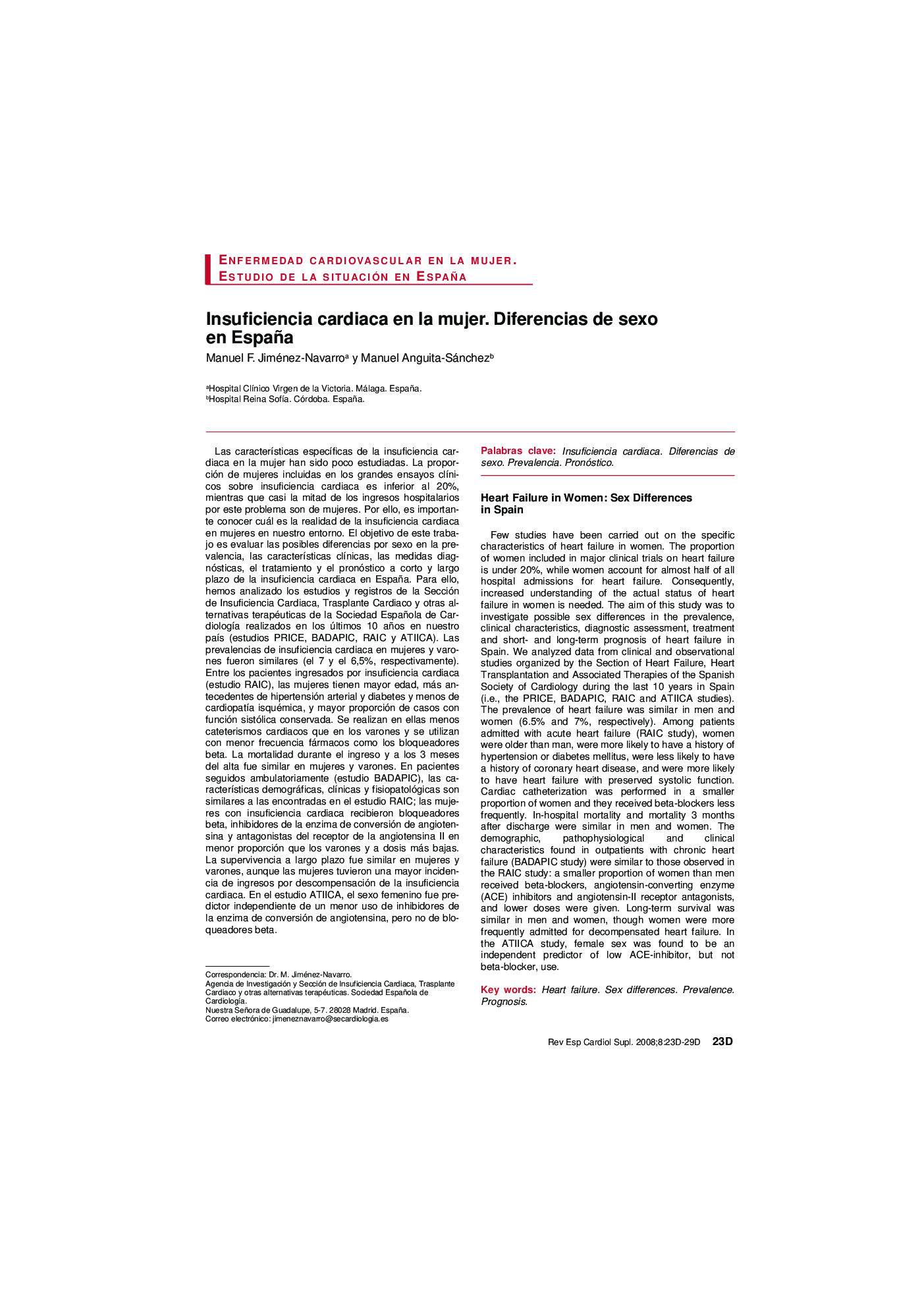| Article ID | Journal | Published Year | Pages | File Type |
|---|---|---|---|---|
| 3019727 | Revista Española de Cardiología Suplementos | 2008 | 7 Pages |
Abstract
Few studies have been carried out on the specific characteristics of heart failure in women. The proportion of women included in major clinical trials on heart failure is under 20%, while women account for almost half of all hospital admissions for heart failure. Consequently, increased understanding of the actual status of heart failure in women is needed. The aim of this study was to investigate possible sex differences in the prevalence, clinical characteristics, diagnostic assessment, treatment and short- and long-term prognosis of heart failure in Spain. We analyzed data from clinical and observational studies organized by the Section of Heart Failure, Heart Transplantation and Associated Therapies of the Spanish Society of Cardiology during the last 10 years in Spain (i.e., the PRICE, BADAPIC, RAIC and ATIICA studies). The prevalence of heart failure was similar in men and women (6.5% and 7%, respectively). Among patients admitted with acute heart failure (RAIC study), women were older than man, were more likely to have a history of hypertension or diabetes mellitus, were less likely to have a history of coronary heart disease, and were more likely to have heart failure with preserved systolic function. Cardiac catheterization was performed in a smaller proportion of women and they received beta-blockers less frequently. In-hospital mortality and mortality 3 months after discharge were similar in men and women. The demographic, pathophysiological and clinical characteristics found in outpatients with chronic heart failure (BADAPIC study) were similar to those observed in the RAIC study: a smaller proportion of women than men received beta-blockers, angiotensin-converting enzyme (ACE) inhibitors and angiotensin-II receptor antagonists, and lower doses were given. Long-term survival was similar in men and women, though women were more frequently admitted for decompensated heart failure. In the ATIICA study, female sex was found to be an independent predictor of low ACE-inhibitor, but not beta-blocker, use.
Keywords
Related Topics
Health Sciences
Medicine and Dentistry
Cardiology and Cardiovascular Medicine
Authors
Manuel F. Jiménez-Navarro, Manuel Anguita-Sánchez,
